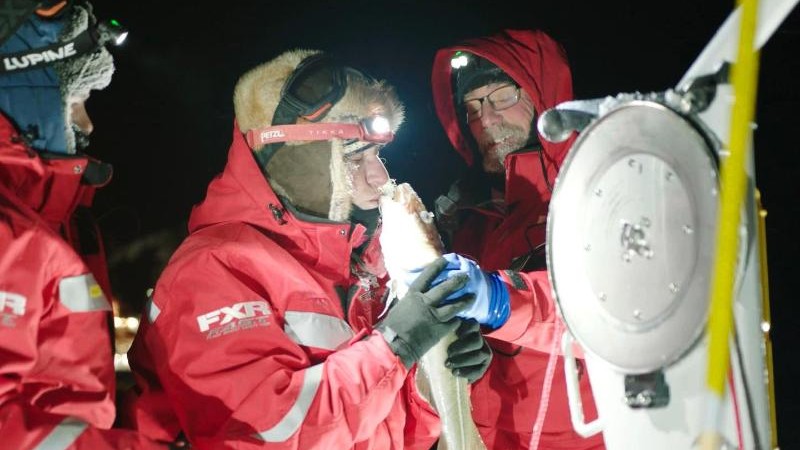Bremerhaven (dpa) – Cod and squid can live in the north much more than previously assumed: during the “mosaic” voyage with the research vessel “Polarstern”, scientists discovered large individual specimens of these sea creatures in the Central Arctic.
The Consortium “Efica” (European Central Arctic Ocean Fisheries Stock) describes the discovery in the journal Science Advances. Science has long assumed that there are no fish in the middle of the Arctic Ocean — and if there are very small fish, said Hook Flores, a biologist at the Alfred Wegener Institute (AWI) in Bremerhaven.
During the expedition, which ran from 2019 to 2020, the researchers captured, among other things, three samples of the Atlantic cod, which is actually a coastal fish. A fish measuring 67.5 cm. “It was a complete surprise,” Flores said. The lab showed that the fish came from Norwegian spawning grounds and were up to six years old.
Few nutrients in the middle of the arctic
“It appears that very few individuals are able to find enough food to survive for long periods of time,” said Pauline Snoijs Leggonmalm, EFICA Consortium Coordinator and Professor of Marine Ecology at Stockholm University. With the help of a deep sea camera, squid and sardines were also discovered during the expedition. “The availability of small fish and even some of the larger fish in the Atlantic aquifer could explain why seals, walruses and polar bears are found even in the Arctic,” Flores said.
At the same time, researchers emphasize that the low nutritional content of the central Arctic prevents the presence of a greater number of fish. However, changes are possible due to climate change, while at the same time, navigating the ice-free Central Arctic in summer is only a matter of decades.
As a precaution, an international agreement came into force in 2021, and was signed by the USA, Canada, Russia and the European Union, among other countries. “This agreement prohibits any commercial fishing for at least 16 years,” said Pauline Snoijs Legonmalm. So science has time to keep looking for fish stocks. This is a “good start on the road to comprehensive protection,” the scientist said.
© dpa-infocom, dpa: 220218-99-185083 / 3

“Alcohol buff. Troublemaker. Introvert. Student. Social media lover. Web ninja. Bacon fan. Reader.”







More Stories
Strange pattern in inorganic compounds
This vitamin is missing from muscle pain
What is dark matter? This phenomenon is explained simply